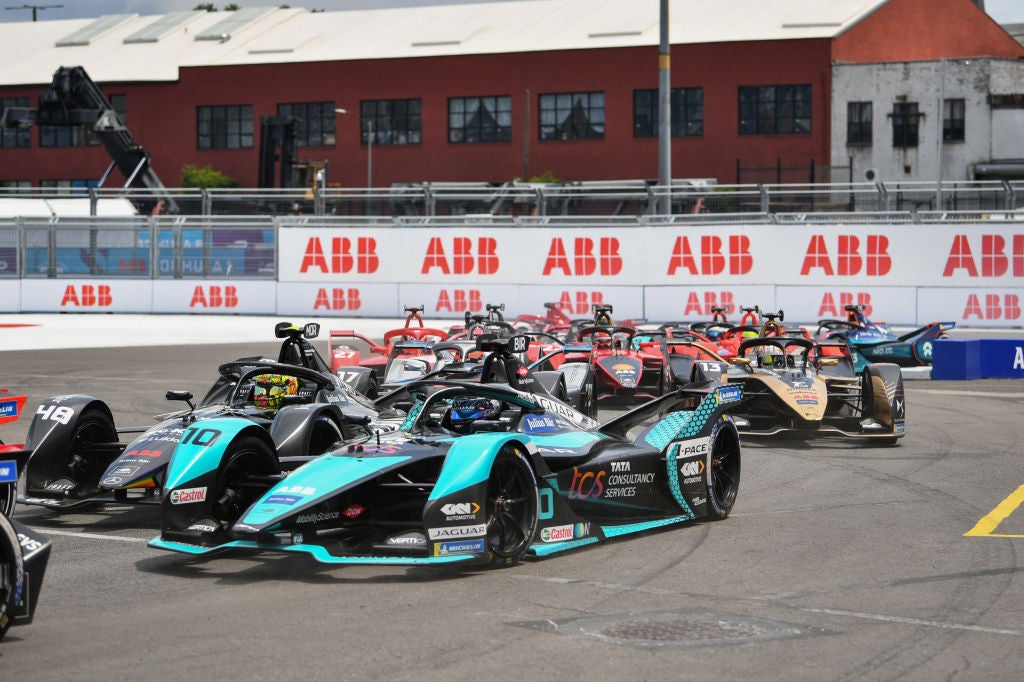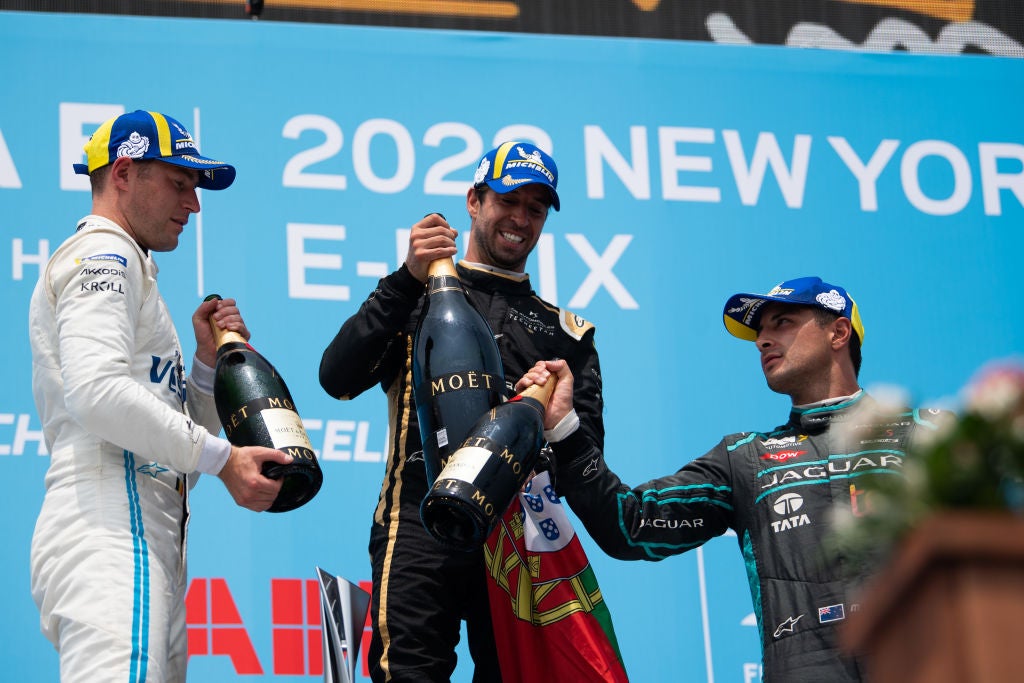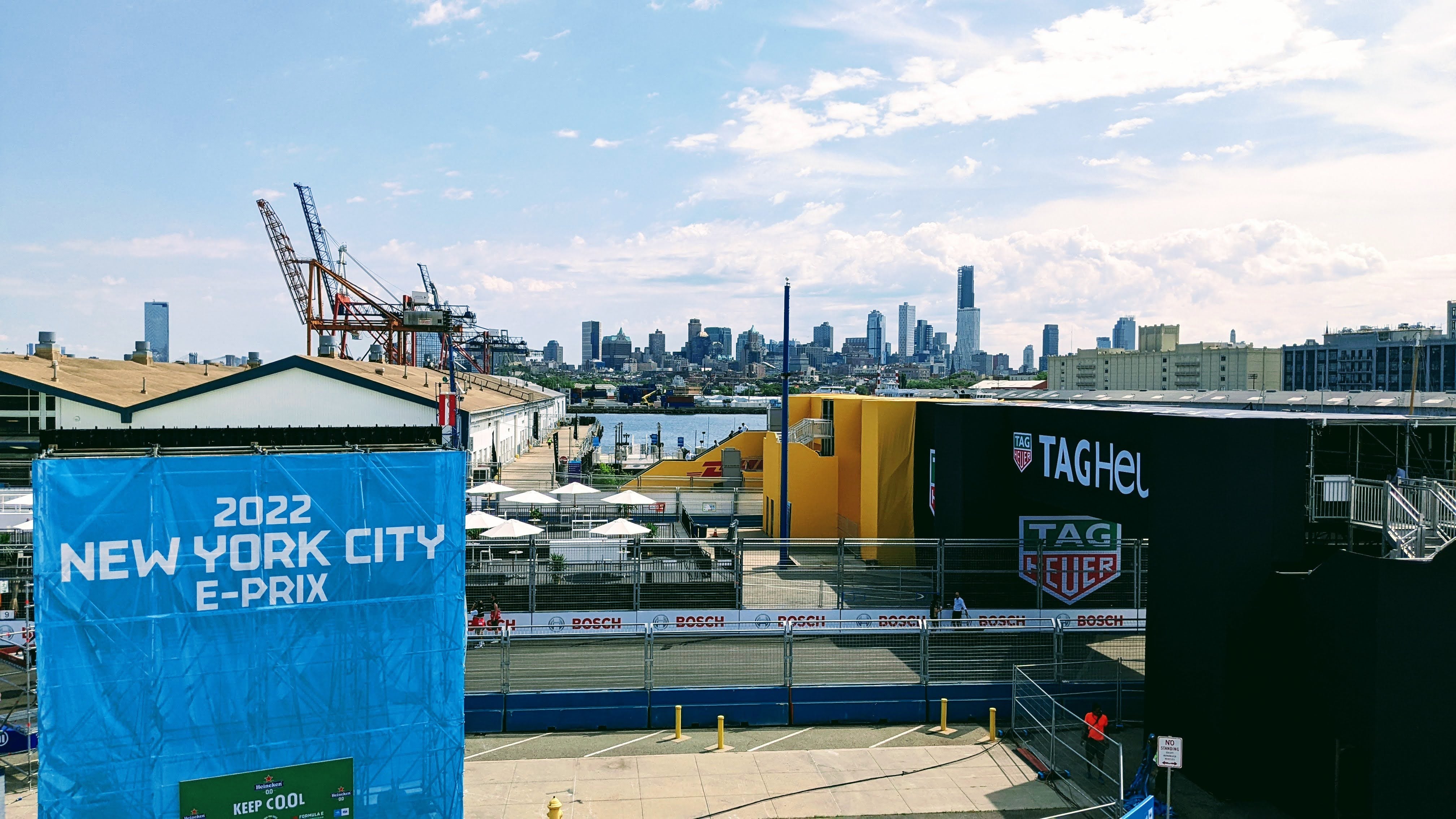Formula E betting big on its own future ahead of London E-Prix and a ‘masterpiece’ of new technology
England’s capital is the next destination for the championship set on conquering the racing world

Your support helps us to tell the story
From reproductive rights to climate change to Big Tech, The Independent is on the ground when the story is developing. Whether it's investigating the financials of Elon Musk's pro-Trump PAC or producing our latest documentary, 'The A Word', which shines a light on the American women fighting for reproductive rights, we know how important it is to parse out the facts from the messaging.
At such a critical moment in US history, we need reporters on the ground. Your donation allows us to keep sending journalists to speak to both sides of the story.
The Independent is trusted by Americans across the entire political spectrum. And unlike many other quality news outlets, we choose not to lock Americans out of our reporting and analysis with paywalls. We believe quality journalism should be available to everyone, paid for by those who can afford it.
Your support makes all the difference.High-pitched screams of tyres from otherwise near-silent cars, flashing lights in ‘attack mode’, fans voting for which driver gets to go faster and a day where the leader crashed out, couldn’t complete the race and yet still ended up winning: this is motor racing, but perhaps not quite as you know it. Probably not for much longer, though.
How Formula E came to be and the earliest conversations which led to its conception have become the stuff of legend in these circles; a meal in a restaurant, notes on a napkin and soon enough, a tender accepted to become the promotors.
One of those involved from day one and still a fundamental piece of the ongoing growth of FE is Alberto Longo, co-founder and the Chief Championship Officer.
The Independent sat down with the Spaniard over the recent race weekend in New York City to discuss the unique appeal of the championship, the hurdles it has needed to overcome and - as is made abundantly clear throughout by the plans in place - the enormous expansion still to come.
City street circuits for all-electric vehicles is the basic premise, for the uninitiated, but there’s a whole lot more to the championship. This is almost a sport of its own: pushing the limits of technological innovation in a relatively controlled environment, much of which may then filter through, in time, to the wider commercial world. Electric vehicles are increasingly in demand, and Formula E shows in an extreme capacity that they have the potential to do far more, far better, in the years ahead.
But at the beginning, it wasn’t quite so easy. Attracting fans to any brand-new event is a challenge in itself; without fans, so too is getting sponsors and commercial partners. And if they are not present, drivers and locations can be somewhat lacking, too.
Legendary driver Lucas di Grassi is hailed as “instrumental” in securing other racers at the beginning of it all, lending credibility to the series, but it’s also the intent to “humanise” the race which stands Formula E apart.
With other areas of motor racing increasingly dictated by engineers and the car production, FE wanted a “pure driver championship”.
So, that’s exactly what the new co-founders of the new race set out to do, completely from scratch - and now they stand on the verge of issuing a third version of their racecar for next season.
“The challenges are never-ending. When you try to do something completely new with the newest technology at the time and we had nothing: no partners, no teams, no cities,” Longo told The Independent trackside in Brooklyn. “Even the technology wasn’t really there. We were trying to do a race of an hour and the tech didn’t allow it, so we decided to use two vehicles per driver in the Gen1 car.
“Four years later Gen2 allowed us to use one car only, now Gen3 is coming next year and it’s a masterpiece.
“It’s the biggest piece of technology in the world today.
“That car is capable of generating 40% of the energy it consumes during the race, while it’s racing. It’s the biggest efficiency on earth.
“The process is a lot longer than people think - we’ve in fact just had the first meetings for Gen4 cars. You have to try and decide what is going to be the shape, the efficiency, the weight of the car in three or four years, then update it all the time.
“For the new cars next year we’ve been very aggressive with our demands. We wanted a lighter car, a faster, more racing type of car. The FIA have come up with a fantastic solution.”
The constant highlighting of greater efficiency, better technology and more self-producing energy is not an accident: the other side of Formula E is all about its sustainability and social impact, way beyond the track limits.

No emissions, clear diversity values and constant reinforcement of the power of continual, incremental improvement - this is the message the series is increasingly able to promote to a wider reach.
But still, it’s a racing sport, and the central appeal must be the on-track excitement for the audiences to keep growing.
Saturday’s race, then, had the lot: unexpected overtaking, an element of participation from those watching on and a surprise victory - but only after clarification of a ruling which confused almost everyone. Sunshine gave way to a brief but heavy downpour and three cars aquaplaned into the wall - all involved walked away just fine - only a few minutes before the race’s end. As it was unable to restart, the final positions were confirmed as those from the lap prior to the crash, leading to a dramatic change in emotions for Nick Cassidy and Envision.
It’s probably fair to point out that, for what is effectively still a fledgling series in the grand scheme of sports, some aspects could benefit from further innovation and improvement: the ‘fanboost’ where scanning a QR code to vote for a driver to go faster is a little flimsy in terms of affecting a serious championship, and there’s of course more to do in terms of exposure and recognition on a regular basis.
Conversely, a likely sell-out crowd well in excess of 20,000 for the trip to London at the end of July shows that there’s not just a market to tap into, but an eager and engaged one. The series continues to impress in the first instance, demand more next time and still be capable of fulfilling that increased expectation.
The growth of FE is exactly the reason behind New York not currently being on the calendar beyond 2022, despite the massive success of this past weekend: the dockside location from which the race was organised will be in more regular use next year, leaving a shortage of options.
It isn’t just about shutting down the streets for 24 or 48 hours: the E-Prix day incorporates a fan village, a viewing grandstand, sponsors’ areas, an accessible drivers’ pen for post-race media duties, a large VIP fans’ section and an enormous centre for crew to work out of - not to mention all the paddocks, security, fencing and foot-traffic bridges required at any racing event. It is truly a collossal operation, assembled and in working order in impressively quick fashion, but it’s also a sign that Formula E is almost outrunning itself in some areas with how fast it has grown.
Discussions are still ongoing about whether they can stay at the same location or switch elsewhere in New York.

If one prestigious and iconic setting in Brooklyn might have just enjoyed its farewell party, next up on the agenda is one of equal standing: back-to-back race days in London, inside and outside the ExCel.
Having part of the circuit indoors is another milestone for Formula E, the first event of its kind to do so. The natural question, then, is how much further it can go?
An awful long way, according to Longo. “We’ve just shown the tip of the iceberg. The opportunities for Formula E are never-ending,” he said.
“We’re exploring with more cities, more partners, teams, manufacturers...the appetite for this championship is massive. We are very young but we have become the second biggest motor sport in the world in only eight years.
“The opportunity is there and we’re going to go for it but what we really need is time. F1 has been there for 70-plus years, we cannot expect a young company to be at the same level in a short time. And we’re not competing against Formula One either. We both have our paths and we can co-exist with no problems.”
There will be new cities to visit next season, with Sao Paulo and Hyderabad both added to the provisional calendar.
But to give real context of the long-term planning, patience and successful execution behind the championship, Longo has an altogether different future location in mind, which fits the Formula E brand and expansion habits - if logistical hurdles can be overcome.
“One of the places we’re missing that we would love to be is Japan. We’re working on it, we have been for seven and a half years! They told me it took eight and half years to approve the marathon. But we’re working towards having a race there and hopefully it will happen sooner rather than later.”
London for the season’s penultimate weekend, Gen3 cars to come next year and Japan on the prospective horizon. Formula E’s future looks set to be exciting and explosive, regardless of timeframe applied.
The 2022 London E-Prix will be broadcast live on terrestrial television on Channel 4 on July 30 & 31. Buy tickets and follow all updates from the race at ExCeL London here.
Join our commenting forum
Join thought-provoking conversations, follow other Independent readers and see their replies
Comments